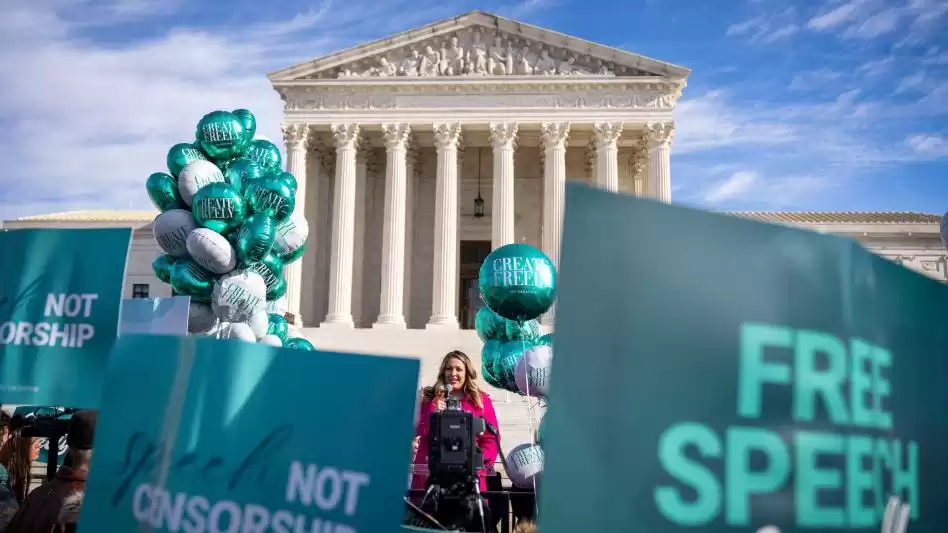The Implications of the Supreme Court's Ruling on LGBTQ Rights
Supreme Court ruling in favor of Christian web designer sparks concerns over civil rights protections.
The recent Supreme Court decision in favor of a Christian web designer in Colorado who refused to create websites for same-sex weddings due to religious objections is expected to have far-reaching consequences for minority groups and civil rights protections in the United States. The 6-3 ruling, delivered by Justice Neil Gorsuch and joined by the court's conservative justices, asserted that the First Amendment's free speech protections allowed the web designer, Lorie Smith, to refuse her services for same-sex weddings. This decision, rooted in free speech, could create a significant loophole in state public accommodation laws for businesses that provide customized and expressive goods and services, allowing them to selectively choose their clients.
Legal experts have expressed concerns about the lack of clarity in the court's decision and its potential impact on various businesses and minority groups. Elizabeth Sepper, a law professor at the University of Texas, argued that the court invented categories that do not exist in commerce, making it unclear which businesses can claim free speech rights against anti-discrimination laws. However, she emphasized that a wide range of businesses could potentially lay claim to these rights. Experts warned that this ruling is just the beginning of a series of legal battles that will likely arise as individuals seek to challenge state and local laws protecting civil rights for different minority groups.
The scope and meaning of the Supreme Court's decision have raised concerns and comparisons to previous cases, such as a major gun rights case from last year. In that case, the conservative majority changed the test used to analyze the constitutionality of firearm regulations, leading to challenges against gun safety laws. Similarly, the ambiguity in the current ruling may result in confusion and further legal challenges regarding discrimination and civil rights protections. Justice Sonia Sotomayor, in her dissent, argued that the decision could extend beyond discrimination based on sexual orientation or gender identity, potentially excluding other groups from various services.
While the majority opinion did not specifically limit the decision to LGBTQ individuals, legal experts believe that it opens the door to discrimination against various minority groups, including those based on race, religion, sex, sexual orientation, and national origin. Critics argue that the ruling provides a green light for business owners to refuse service to individuals based on their identity, which could undermine civil rights protections in multiple areas of life, such as employment, housing, and business interactions.
The decision represents a departure from previous LGBTQ rights cases, where the Supreme Court extended federal protections to LGBTQ workers and legalized same-sex marriage nationwide. LGBTQ advocates and experts warn that the ruling will likely embolden opponents of LGBTQ rights and trigger a new wave of litigation that could erode civil rights protections in other areas. The decision raises more questions than it answers and invites further litigation to determine the limits of discrimination and civil rights protections.
Overall, the Supreme Court's decision in this case has significant implications for minority groups and civil rights protections in the United States. The ruling's impact extends beyond the LGBTQ community, creating uncertainty and potential challenges to anti-discrimination laws. It remains to be seen how this decision will shape future legal battles and the extent to which civil rights protections will be upheld.












Comments on The Implications of the Supreme Court's Ruling on LGBTQ Rights